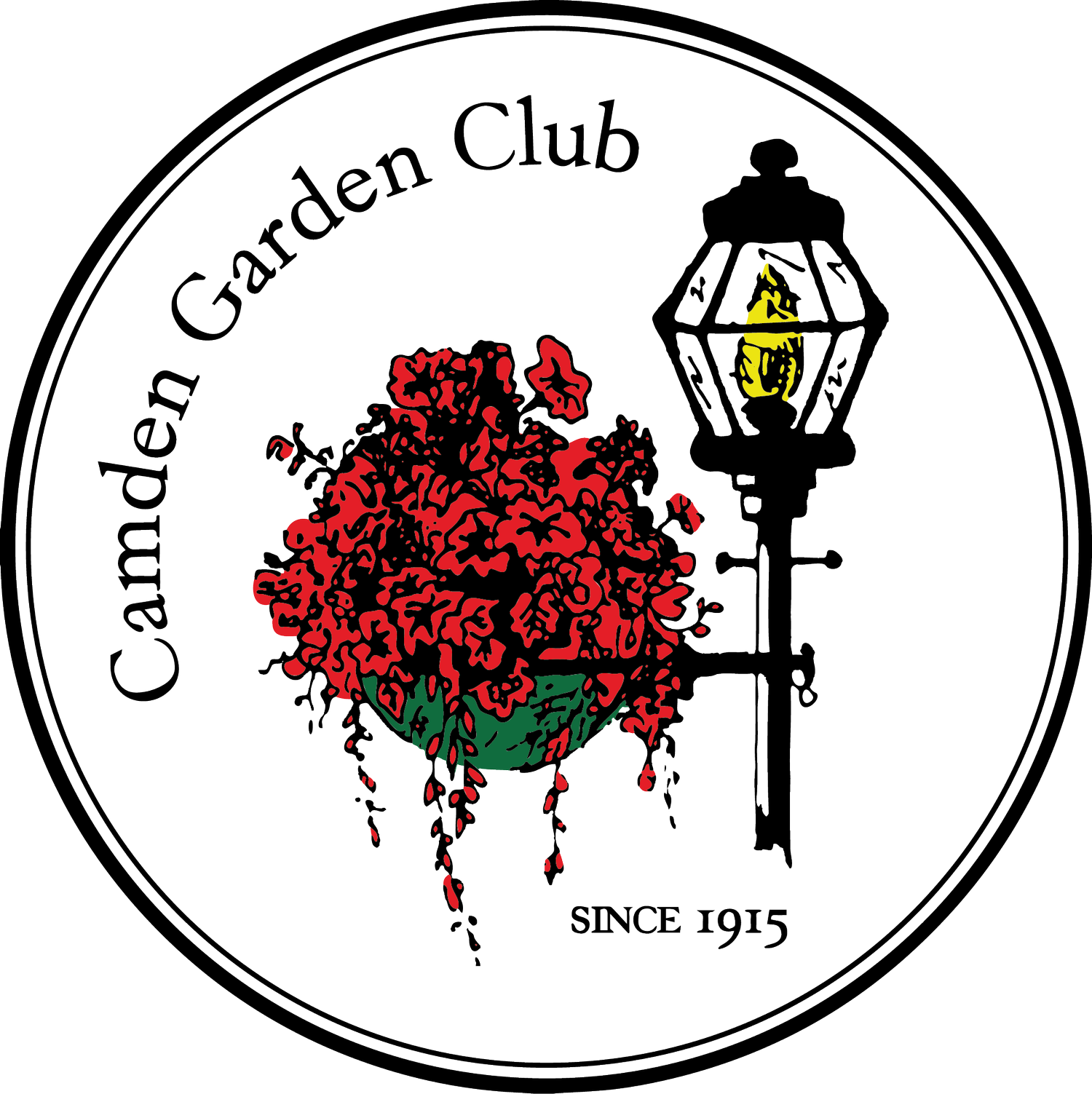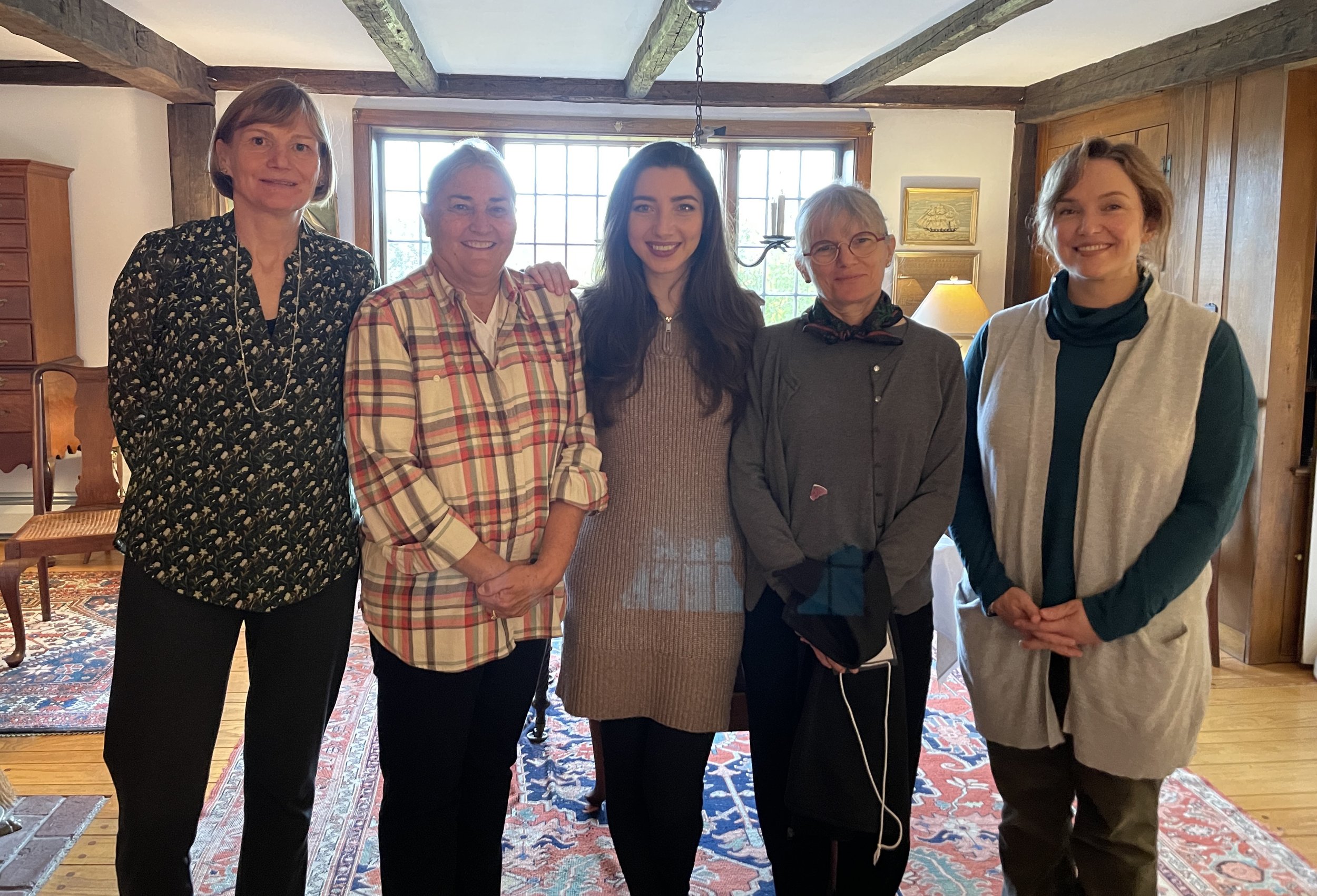For 51 years the Club has provided the Town of Camden with its iconic holiday wreaths to adorn the 98 downtown lampposts.
Read moreCamden Garden Club makes bows for downtown Camden lamppost wreaths
Members of the Camden Garden Club making the bows for the holiday lamppost wreaths, 2022. Photo courtesy of Camden Garden Club
Members of the Camden Garden Club making the bows for the holiday lamppost wreaths.
Read moreCamden Garden Club Welcomes New Members
New members at the Camden Garden Club's New Members Coffee. Pictured left to right, new members Allison Matlack, Sharon Hilton, Georgiana Darie, Ali Dailey and Jeanine Carlson. Photo Courtesy of Camden Garden Club
14 new members joined the Club in 2022, bringing the total membership to 88.
Read moreFirst Fall Plant Sale a Success
Our first fall plant sale raises over $1000 for scholarships
Read more74th Annual Garden Tour a Success
Our 74th Tour raised over $15,000 for the Club
Read moreCamden Street Shade Tree Program Applications Due March 25th
Maple tree planted at the Montessori School in 2021
Read moreLasagna Gardening
On Tuesday, February 22 at 9:30 a.m, the Camden Garden Club hosted “Lasagna Gardening,” presented by Liz Stanley, as its last program in the Winter Horticulture Series 2022.
Lasagna gardening or sheet mulching is a technique that has been used around the world for generations. It is an easy way to transform part of a lawn or waste space into a new vegetable or perennial bed by layering and recycling readily available materials. After letting the area rest, the layers break down; building a growing medium of organic matter that improves the soil substrate's quality. In this presentation, you will see some examples of lasagna gardens, what kinds of "recipes" were used, and which plants thrive in this environment.
Liz coordinates adult and youth gardening programs, and answers countless gardening calls, for the University of Maine Cooperative Extension in Knox, Lincoln and Waldo counties. Her main focus is the Master Gardener Volunteer program where participants receive over 50 hours of training in the art and science of horticulture. In return, volunteers support school and community gardens, food security initiatives and environmental projects.
If you would like to view this presentation on YouTube, click on this link: https://youtu.be/V80gTqFzLlY
Monarchs, Milkweed and Migration
On February 15, Cyrene Slegona discussed the mysteries of the North American migration of Monarch butterflies and what they need to survive as a species. She described the life cycle and behaviors of each metamorphic stage, reviewed current and future research, and explained the risks predators and disease pose to Monarchs. Cyrene also addressed what can be done to help save these beautiful butterflies for future generations, discussed the importance of native Maine milkweeds and suggested pollinator-friendly gardening ideas.
A resident of Belfast, Cyrene has studied Monarch butterflies since she was 12. She is a member of the Maine Entomological Society and she has had the privilege of visiting Monarch overwintering sites in Mexico. As an elementary and middle school teacher, she presented yearly Monarch research projects to children. She continues to rear, release and tag Monarchs every summer.
If you would like to view this presentation on YouTube, click on this link: https://youtu.be/e-1WqKDLpew until March 1, 2022.
A Virtual Walk Through Camden
On Tuesday, February 8, the Camden Garden Club’s annual Winter Horticulture Series third program was presented by Dave Jackson and Amy Rollins.
Dave and Amy teamed up in the summer of 2012 to present Historic Walking Tours of Camden, originally created as a joint outreach program of the Camden Area Business Group and the Camden Public Library. The tours have been offered free of charge on Friday afternoons throughout the summer months for the past ten years.
Dave is the Director of Parks for the Camden Public Library, including Harbor Park, the grounds of the library and the Amphitheatre. Dave was instrumental in nominating the Amphitheatre and Camden Public Library as a National Historic Landmark, a process, which took six years to complete. The National Park Service awarded the designation in March 2013. During his tenure at the library, Dave has successfully applied for several grants through the National Trust for Historic Preservation, which allow the library to maintain its treasured landscape.
Amy is the Member Services Director for the Penobscot Bay Regional Chamber of Commerce. A Camden native and former Trustee of the Camden Public Library, Amy has a passion for researching and sharing Camden's history. She has a particular interest in interviewing key figures who remember the Camden of her childhood and before her time.
If you would like to view this presentation on YouTube, click on this link: https://youtu.be/meO_ekPGVc0
Foraging for Favorite Wild Edibles
On February 1, the Camden Garden Club hosted a presentation by Tom Seymour on foraging as part of its annual Winter Horticulture Series.
Tom has written his garden column, From The Ground Up, for Courier Publications since the mid-1990s. He is an author with 14 titles to his credit including Foraging New England and Foraging Mushrooms Maine. He conducts foraging seminars for public entities as well as for individuals and he taught foraging at Eagle Hill Institute in Gouldsboro. During his presentation, Tom identified various local wild plants that are eatable and answered numerous questions on foraging and whether wild plants can be transplanted with success in local gardens..
If you would like to watch this presentation on YouTube, click here: https://youtu.be/Nw5VeFAabTk
Nature Photography with Stacey Keefer

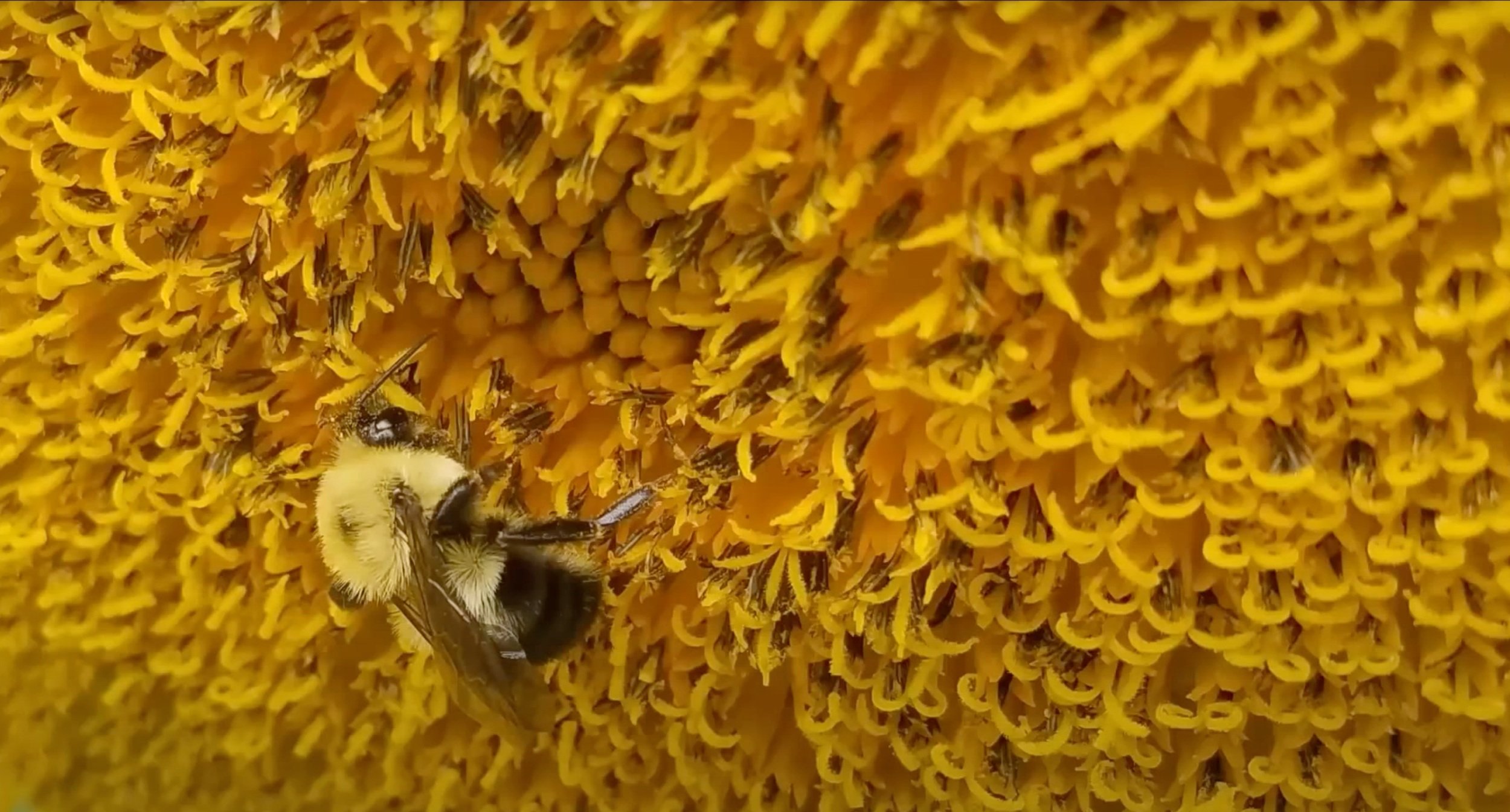
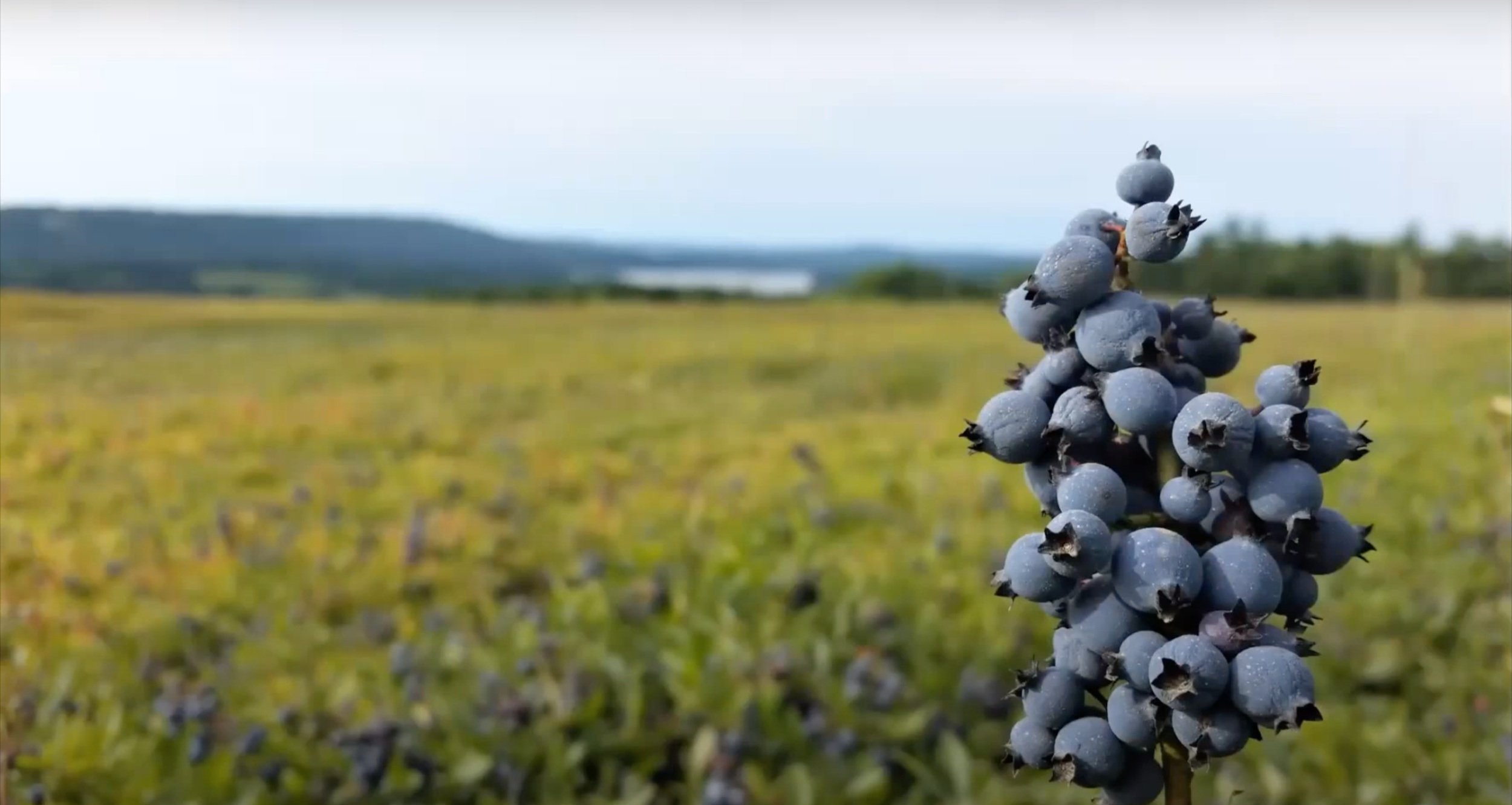
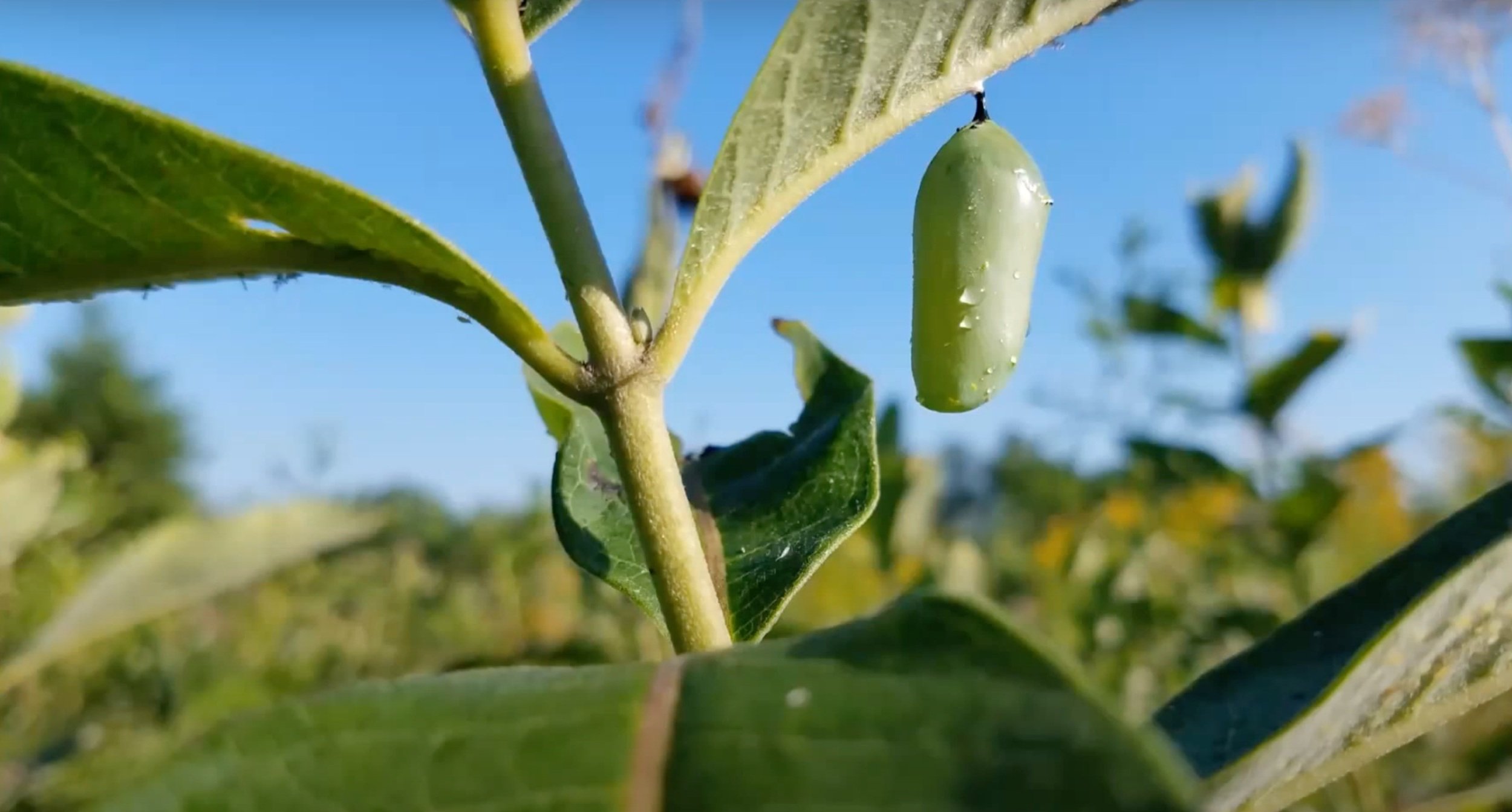
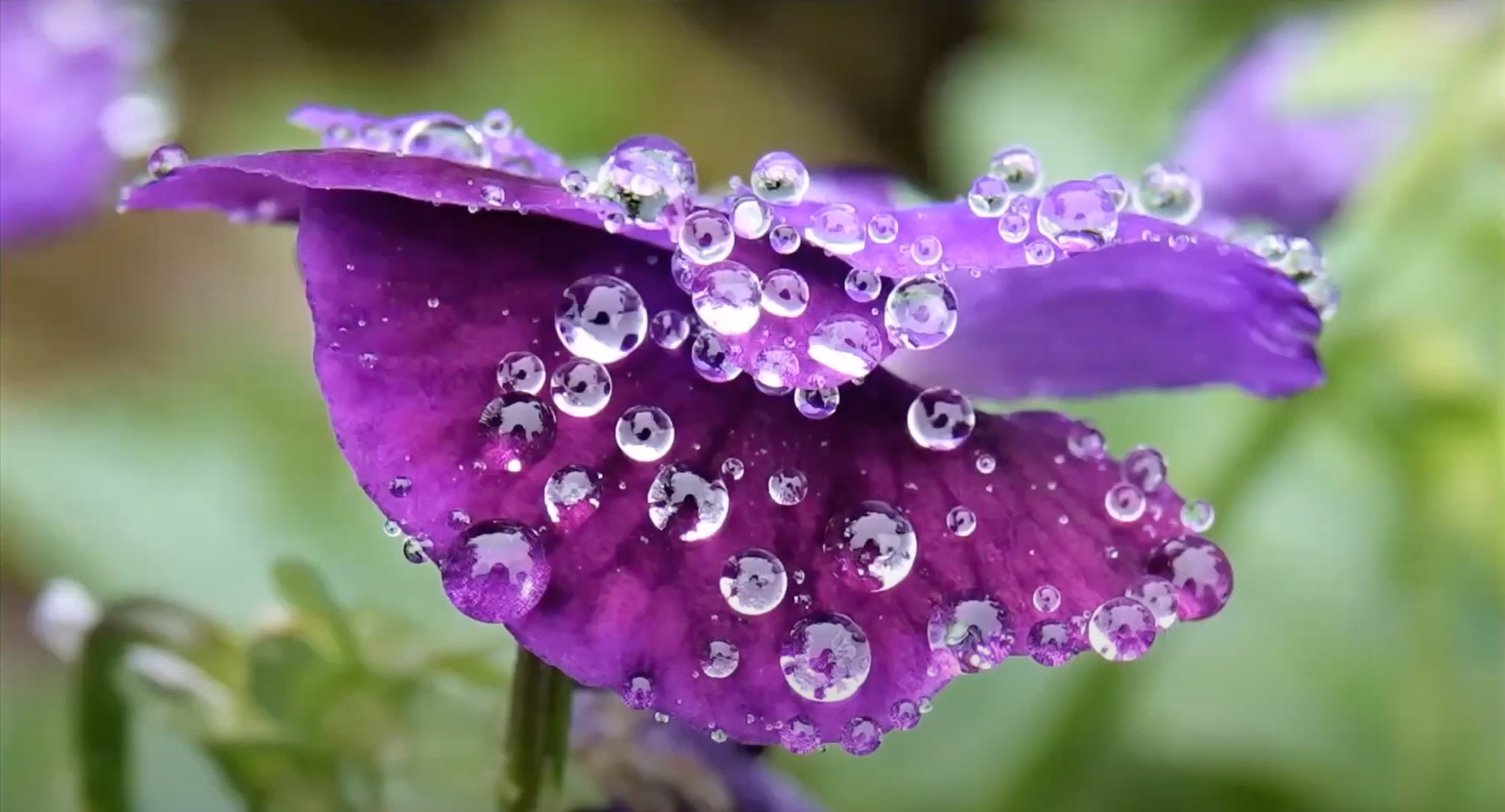
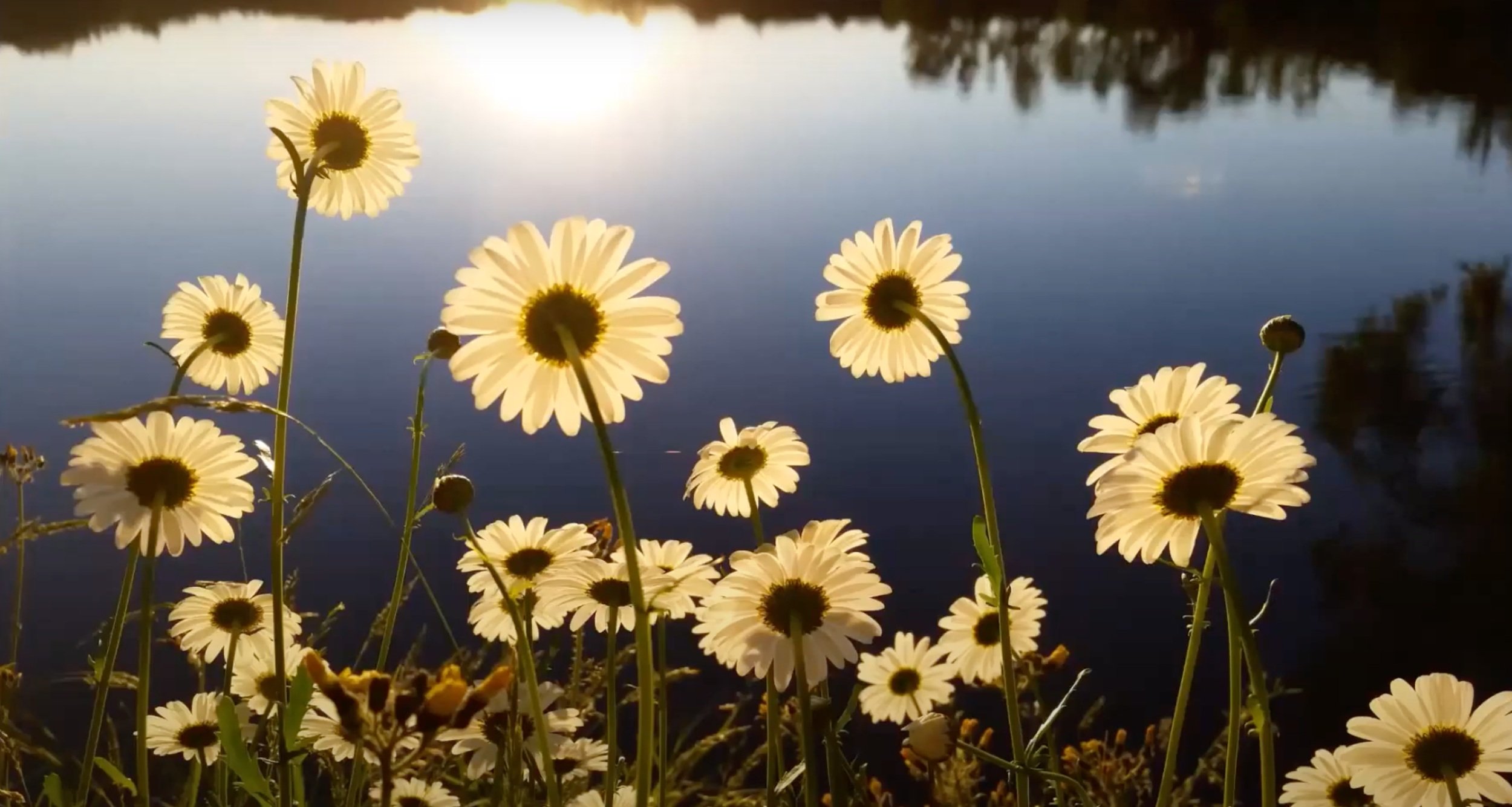

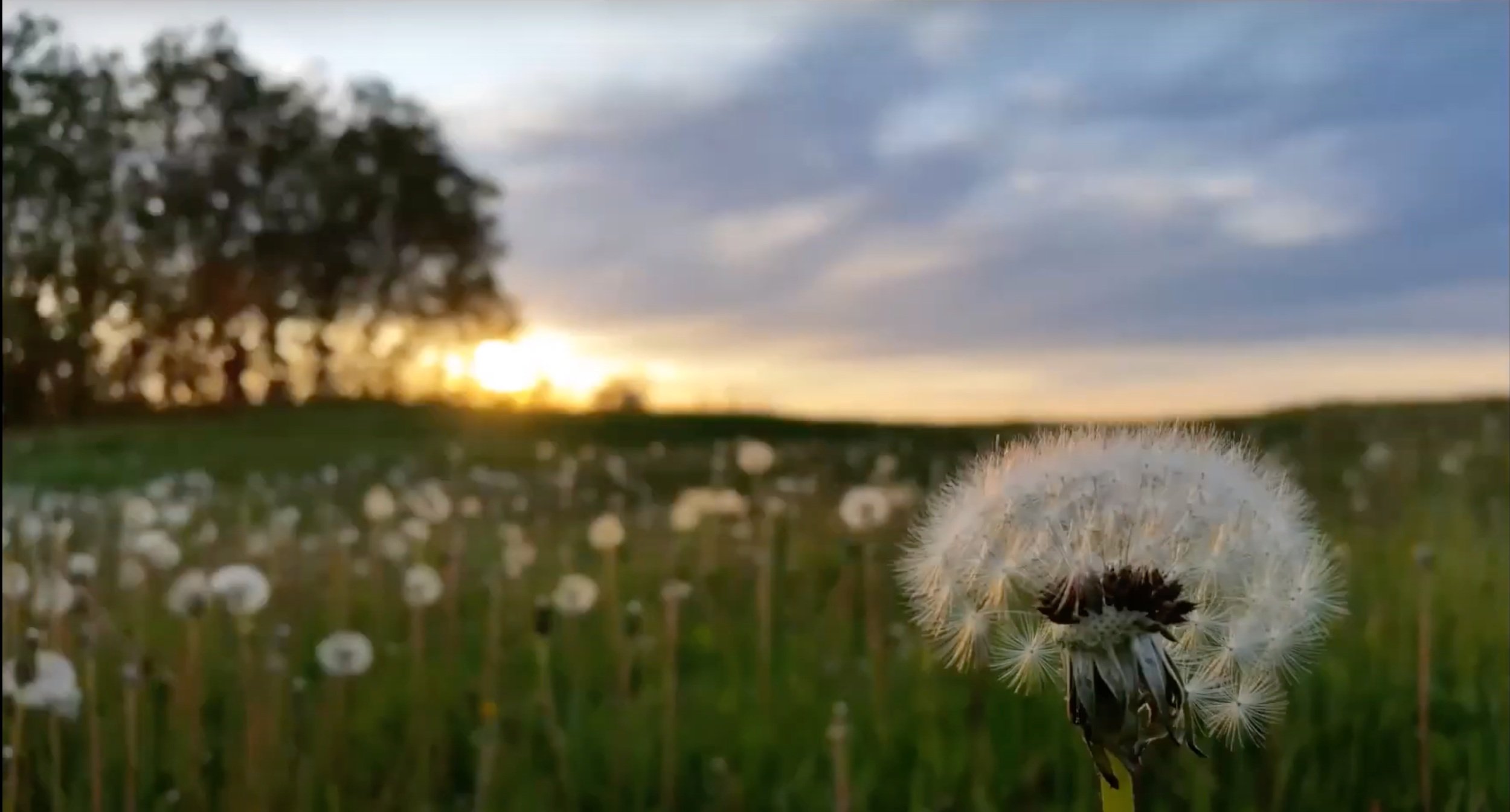
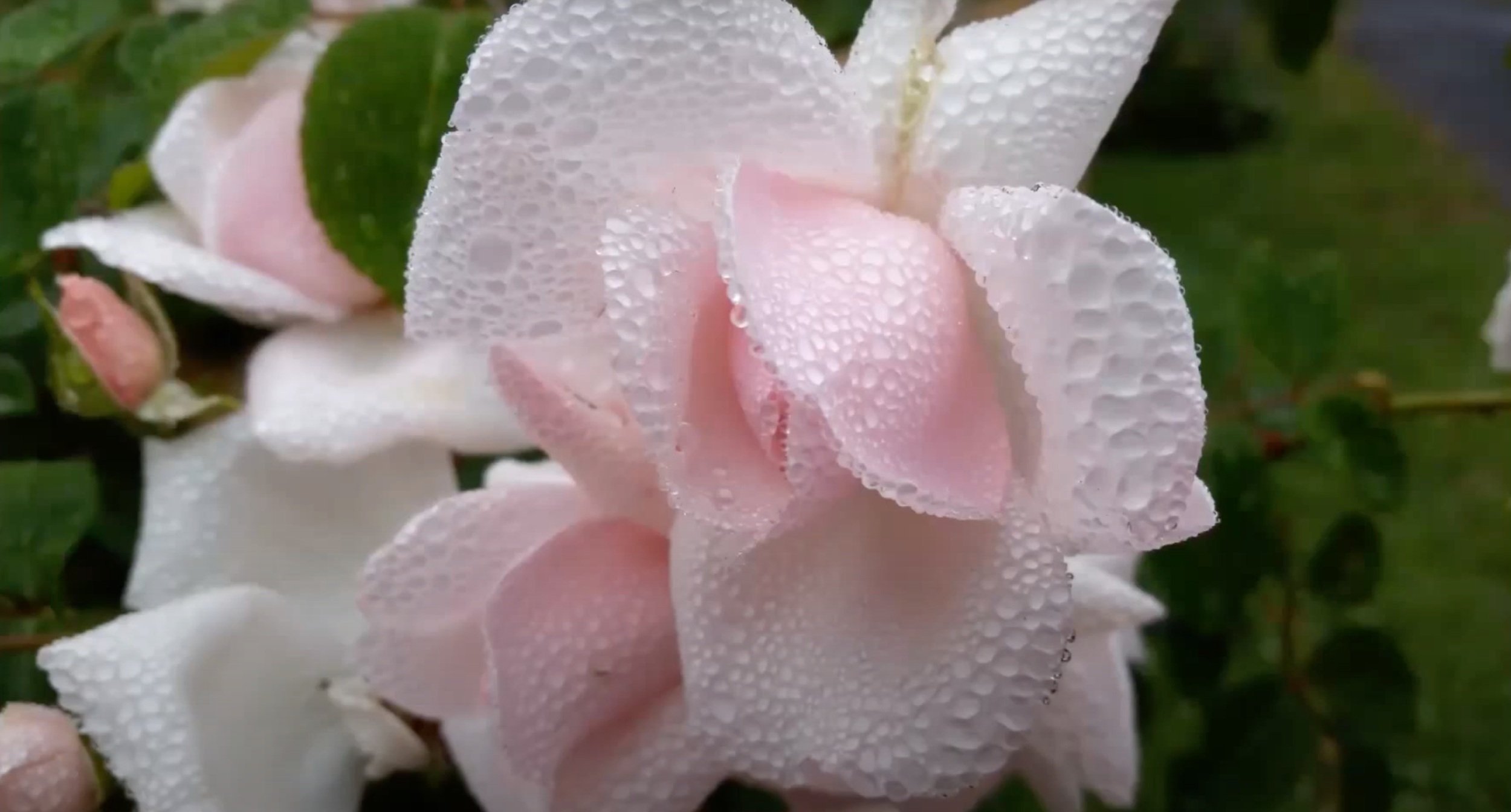
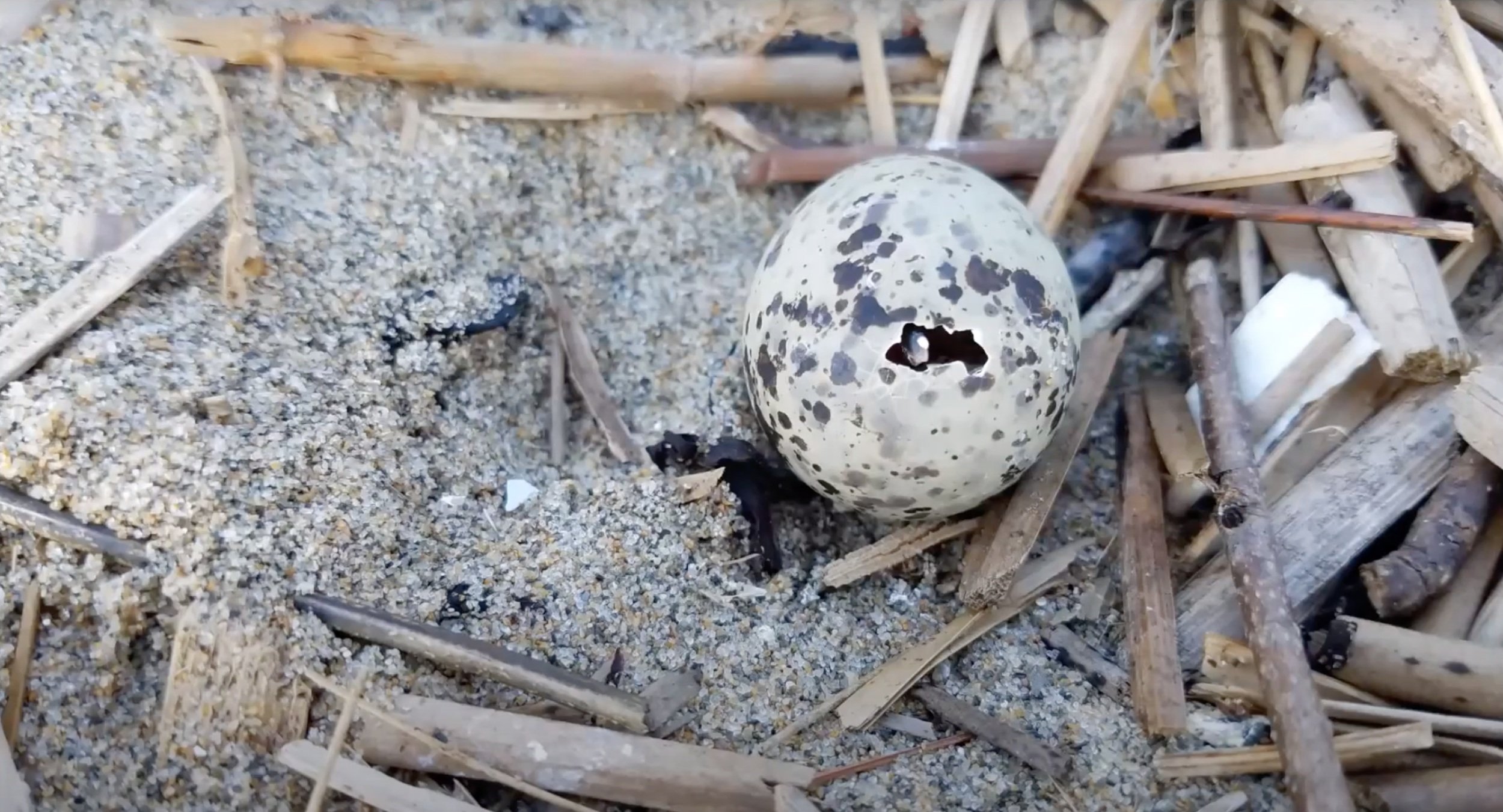
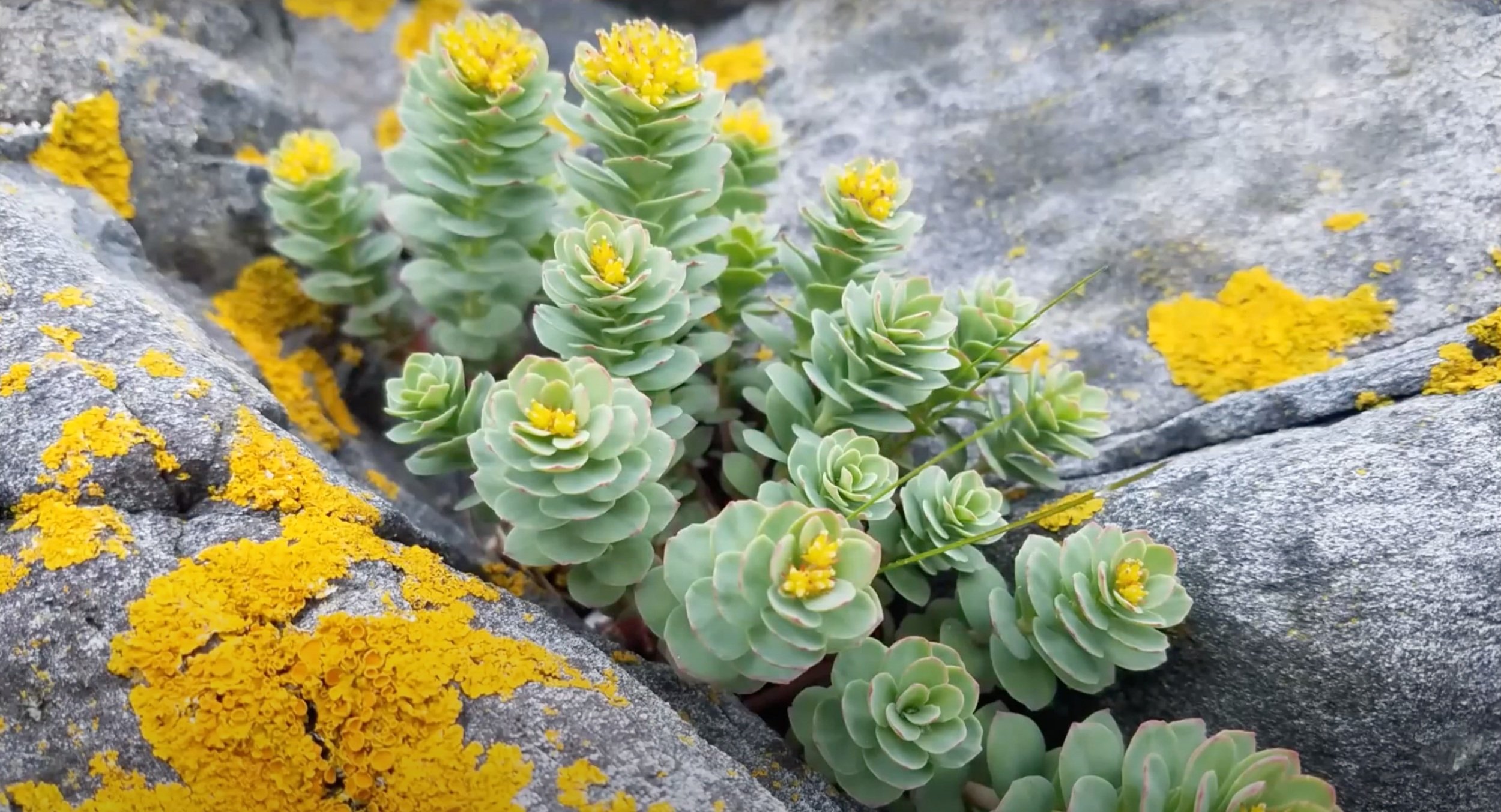



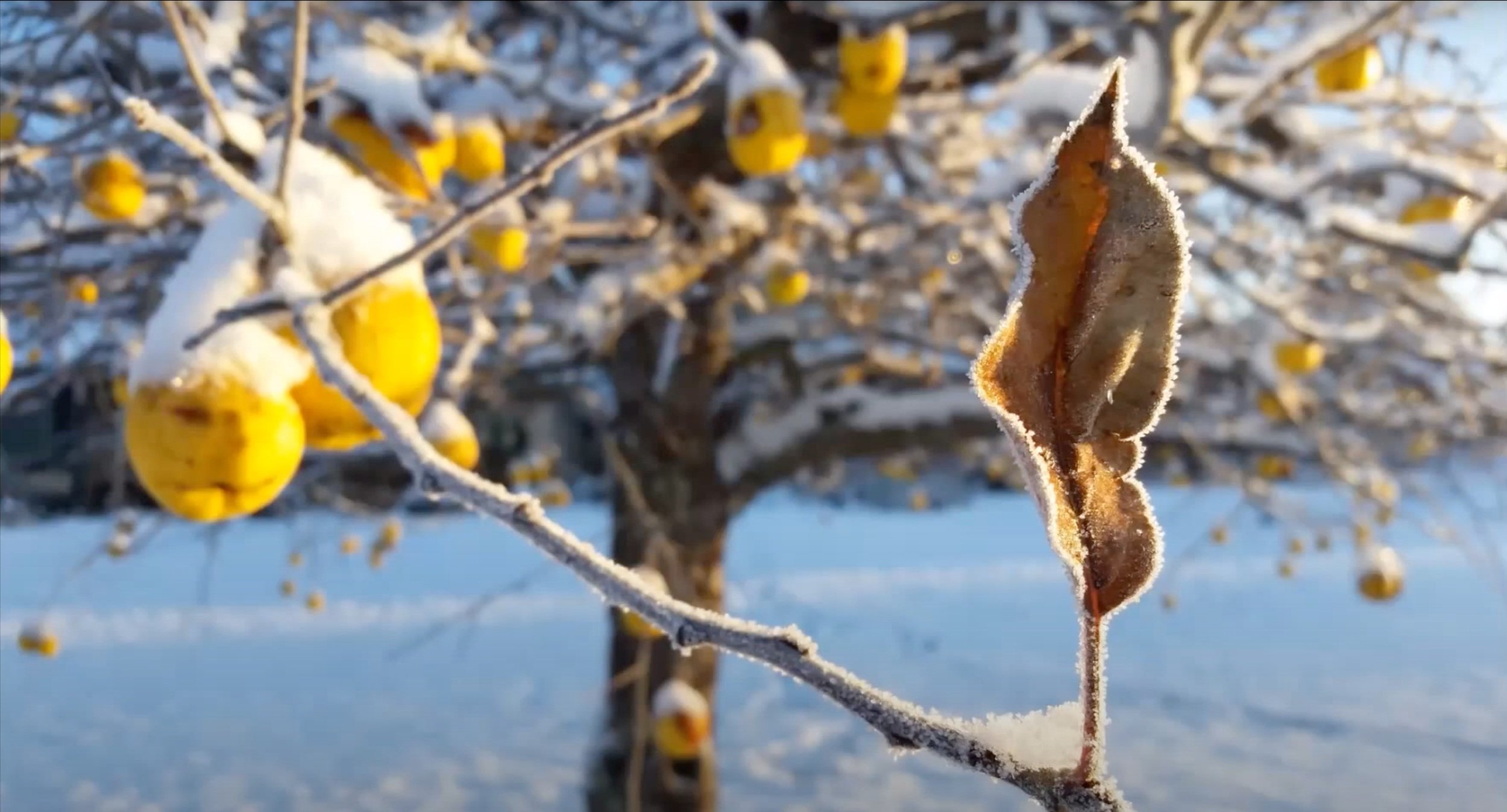

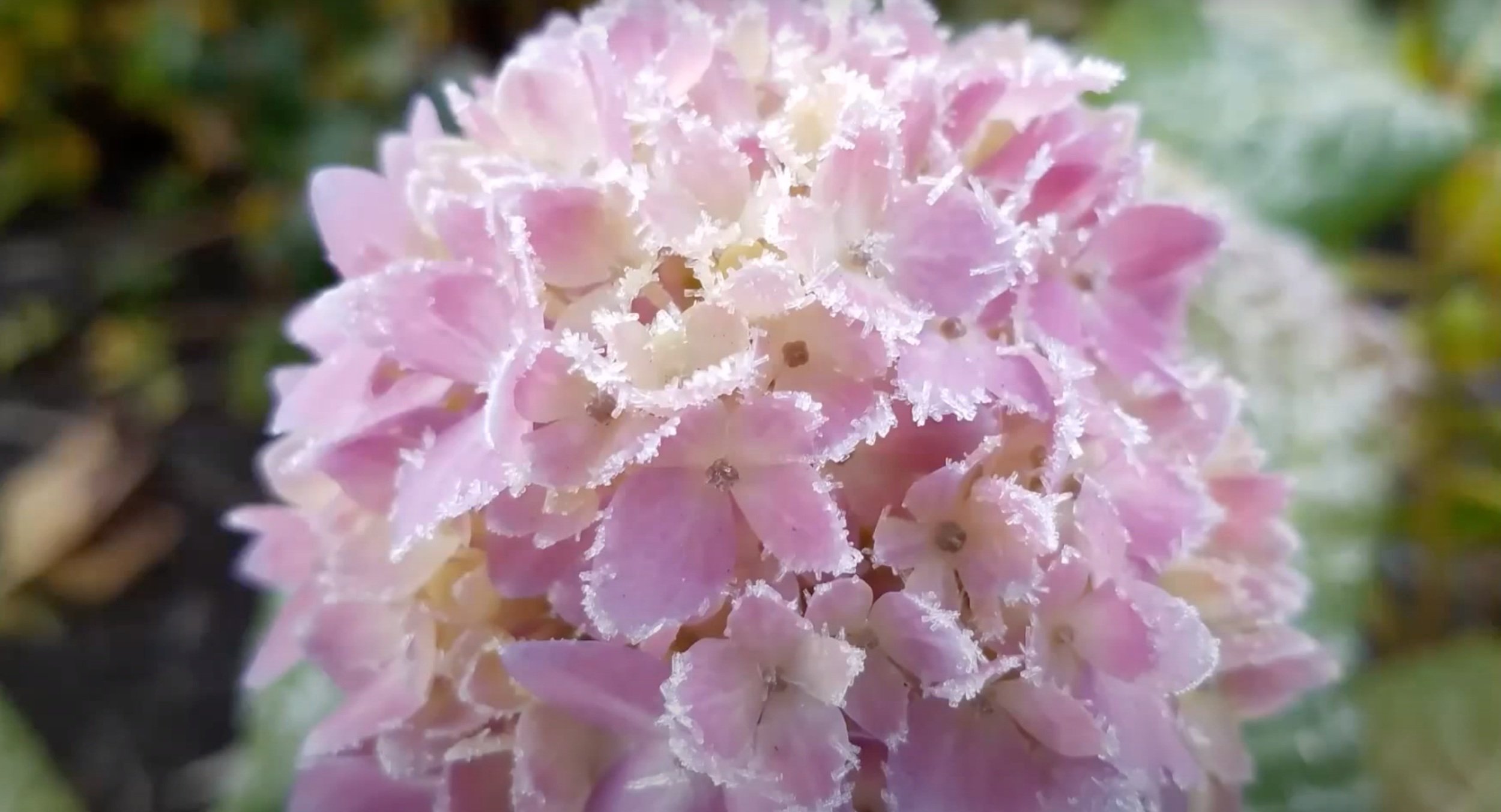

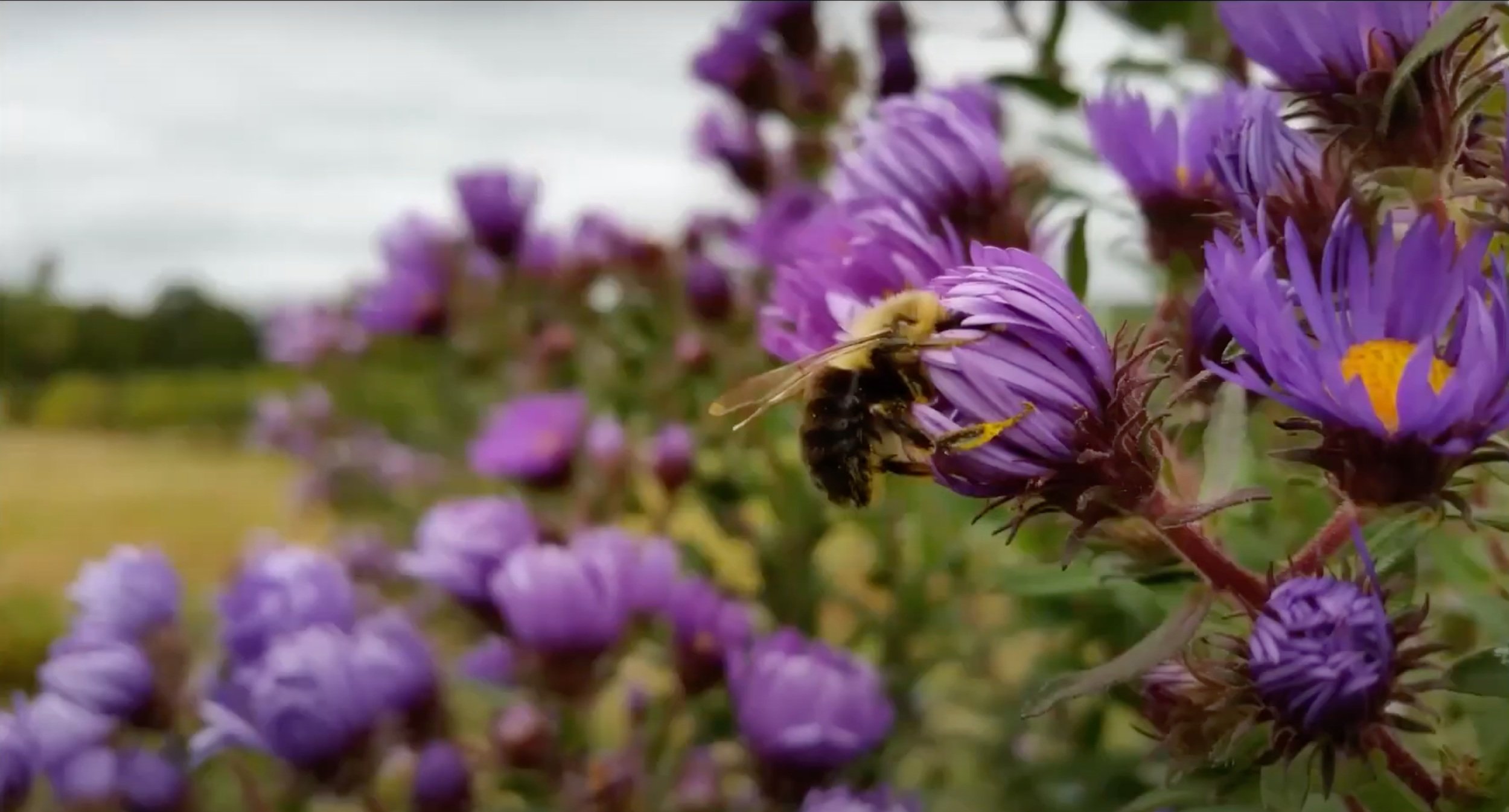

Nature photographer Stacey Keefer presents her work as part of the 54th Annual Horticulture Series.
Read more2022 Winter Horticulture Series
Join us for our annual Winter Horticulture Series of free public presentations to promote education and conservation of our natural resources.
Read moreThree Examples of Hugelkultur
Logs and branches at the bottom of raised beds. Photo credit: David Kibbe.
By Camden Garden Club Member David C. Kibbe, MD
Read moreThe Night Before Christmas at Montpelier
Decoration at the Montpelier mansion, operated as The General Henry Knox Museum, contributed by the Camden Garden Club for the holidays. Photo credit for all photos: Camden Garden Club
Members decorate a room at The General Henry Knox Museum
Read moreBlue Star Veteran Memorial Markers cared for each year by the Camden Garden Club
The Camden Garden Club would like to thank veterans each and every day for their service.
The Club is grateful for the continued support of the American Legion, who graciously hosts us at War Memorial Post No. 30 (the American Legion Hall in Camden). We are honored to be able to partner together to support our community.
For the past six years, volunteer members of the Camden Garden Club have cared for nearby Blue Star Memorials for Memorial Day and Veterans Day. This year was no different. The Camden Garden Club cleaned up the landscape and decorated two sites for the Veterans Day holiday: one in Thomaston, and the other in Rockport, both along Route 1.
National Garden Clubs Inc. started the Blue Star Memorial Project of National Garden Clubs to pay tribute to the U.S. armed forces in 1945. The system covers thousands of miles across the United States. In 2020, there were 30 markers in Maine.
Camden Garden Club Wreath Tradition Adds Holiday Magic
Just a few of the Camden Garden Club members who decorated 98 wreaths for lampposts in downtown Camden in 2021
On November 3rd and 10th, members of the Camden Garden Club gathered at the American Legion Hall to make bows and assemble the fresh balsam wreaths now lining Elm and Main Streets lampposts in Camden this holiday season. Since the 1950s, the Club has provided holiday decorations for the town. The tradition of fresh balsam wreaths adorned with puffy red bows and lights began in 1971 and this year marks its 50th year.
Bow assembly in progress November 3rd
The Club has purchased the fresh balsam fir wreaths from Evergreen Farms in Damariscotta for over seven years using funds raised during the Club’s Annual Garden Tour. Members attending the consecutive Wednesday work sessions contributed over 100 volunteer hours to handcraft red velvet bows and wire multiple strings of lights to the wreaths. The Camden Public Works Department installed the wreaths on November 10th, shortly after the Club assembled all 98 wreaths currently on display in downtown Camden.
Two strings of lights are prepared before wiring on the wreaths
Wiring the light circles
Wreaths ready to be hung on the downtown Camden lampposts
Since 1915, the Club has provided thousands of blooming flower baskets and lighted, decorated wreaths that adorn the downtown lampposts seasonally, adding to the magic of the season.
Camden Public Works Department hang decorated wreaths on Elm and Main Street lampposts
Companion Planting with Jean Vose
Companion planting with tomatoes and marigolds. Photo: Marie Coleman
Pairing plants together that benefit one another
Read moreDollhouse Being Raffled to Support American Legion Scholarship
A fundraiser benefiting the Camden American Legion War Memorial Post #30 Veterans Memorial Scholarship involves raffle tickets for a locally handcrafted dollhouse.
Read more50 Years of Wreaths | Support the Camden Downtown Holiday Wreaths
Our work to beautify Camden for the holiday season
Read moreTwo Princeton Sentry Gingko Trees Grace Downtown Camden
Two ginkgo trees went in new sidewalk bump-outs at the downtown intersections where Mechanic and Chestnut streets meet Route 1.
Read more